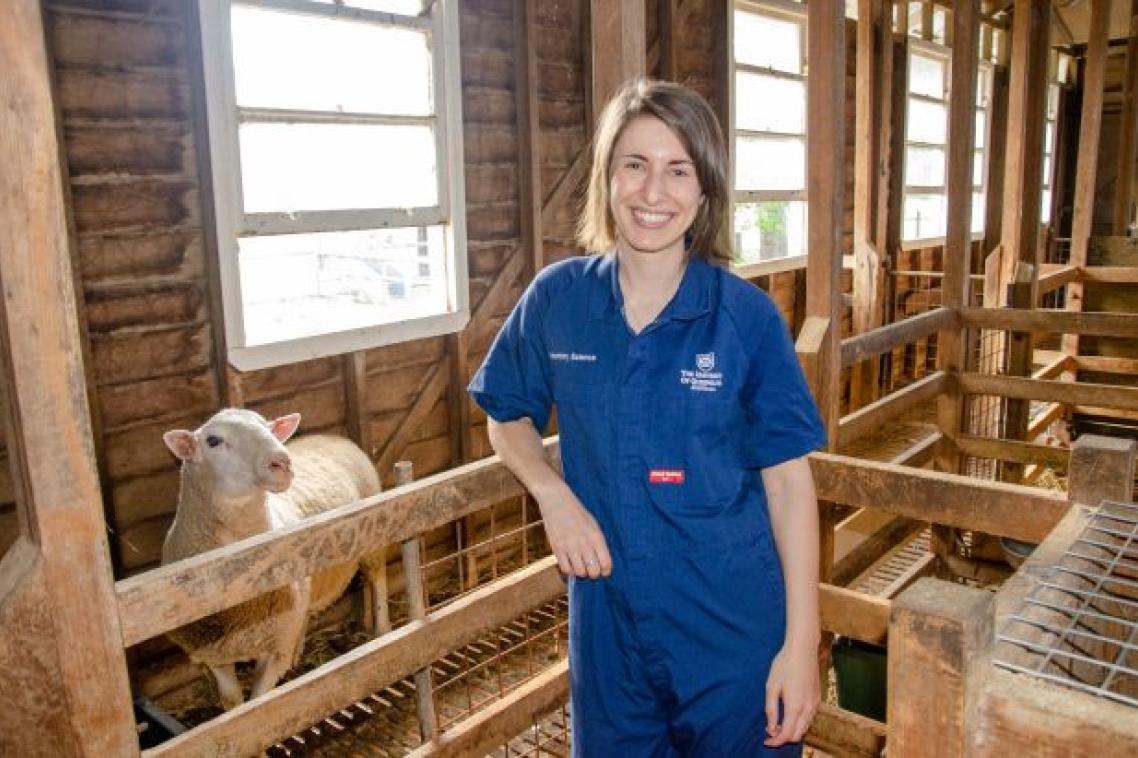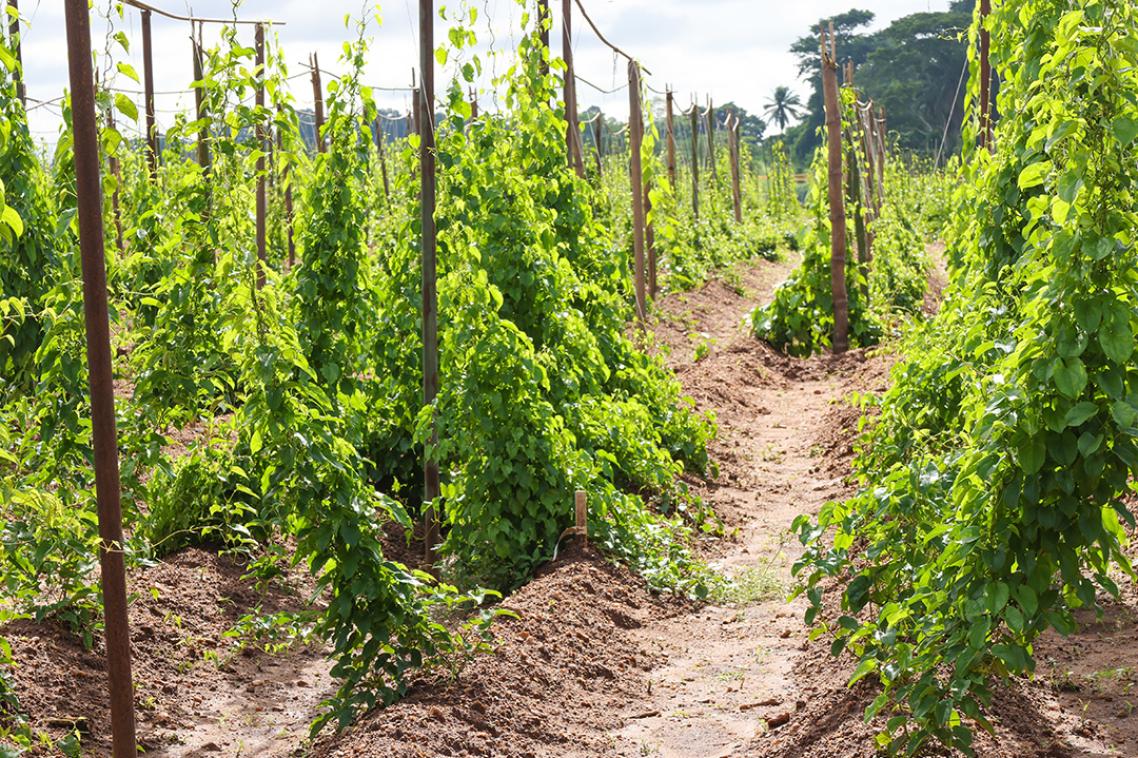Improved sheep insemination a potential breakthrough for industry

Dr Taylor Pini said only 5% of Australian sheep are bred using artificial insemination.
(Photo credit: The University of Queensland. )
Researchers at The University of Queensland are investigating ways to lift the low success rate of artificial insemination (AI) in sheep, which would improve wool and meat yields, sustainability, and enhance animal welfare.
Lecturer in Veterinary Reproduction at UQ’s School of Veterinary Science, Dr Taylor Pini, said artificial insemination of sheep was notoriously difficult, resulting in pregnancy rates below 30 per cent.
“Unlike most domesticated species, we can’t achieve high pregnancy rates using frozen semen due to the peculiar anatomy of the sheep’s cervix,” Dr Pini said.
“This research will specifically look at the biochemical interactions between previously frozen sperm and the cells within the sheep’s cervix.
“If we figure out what’s going wrong in the normal physiological interaction, we hope to identify biological pathways to intervene and improve pregnancy success rates.”
More reliable AI in sheep would lead to rapid production gains as producers gain access to elite male genetics without the biosecurity risks involved in moving rams.
“Alongside improvements in traits like wool and meat yields, AI would also allow for the selection of animals that have a reduced climate impact and an enhanced capacity to cope with the changing climate,” Dr Pini said.
“Making artificial breeding technologies more accessible for producers would be huge for the industry.”
Only around 5 per cent of sheep in Australia are bred using artificial insemination, compared to the Australian dairy industry which boasts rates of 85 per cent.
“In the dairy industry, AI has allowed for rapid genetic improvements in cows while the sheep industry has been restricted to much slower progress through natural mating,” Dr Pini said.
“Existing insemination methods haven’t evolved in more than 40 years, highlighting the need for fresh new ideas with both commercial and animal welfare interests front of mind.”
Dr Pini’s research is supported by a grant from Australian Wool Innovation (AWI) as part of the Science and Innovation Awards for Young People in Agriculture, Fisheries and Forestry.
AWI CEO John Roberts said genetic gain is fundamental to breeding resilient, productive sheep and driving a sustainable industry.
“Accelerating this through effective, low-cost cervical AI would be a major breakthrough for the Australian wool industry,” Mr Roberts said.
“Progress in this space has proved challenging but I am confident the solution lies in young, innovative leaders like Dr Pini.”
Related articles

Seismic shake-up: digitising 90 years of Queensland’s earthquake history

